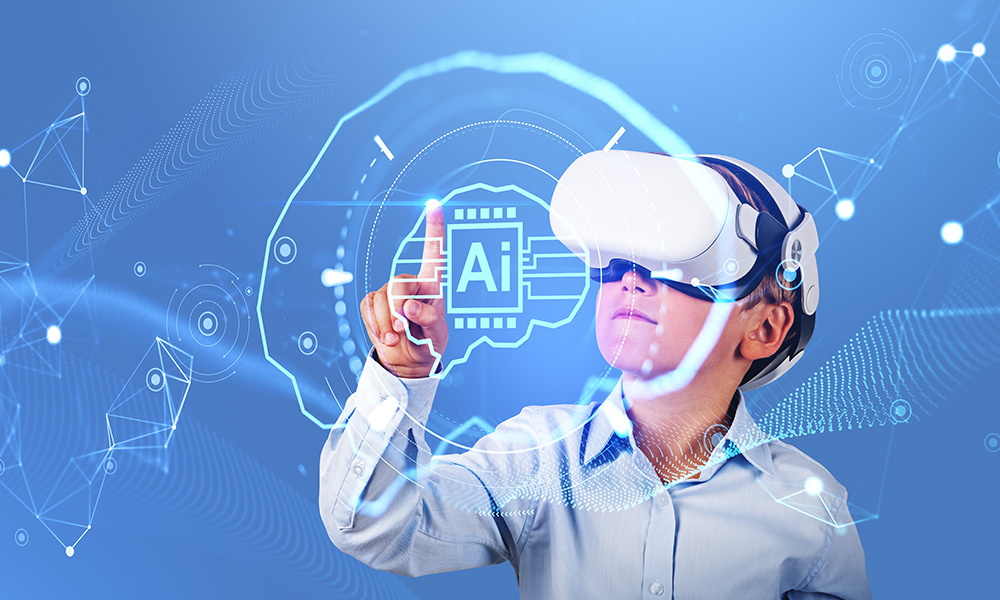An Intuitive Guide
Hello there! If you’ve ever wondered how your smartphone understands you, how Netflix knows what you might want to watch next, or how self-driving cars navigate streets, then you’ve encountered the fascinating world of Artificial Intelligence, or AI. Let’s explore AI together and understand what it’s all about in a simple and intuitive way.
What is AI?
At its core, Artificial Intelligence is about making machines think and act like humans. It’s like giving computers a brain, so they can solve problems, learn from experiences, and even make decisions. Imagine having a robot friend who can play games with you, help with your homework, or even tell you a joke—that’s AI in action!
How Does AI Work?
AI works by mimicking how humans learn and make decisions. Here’s a simple breakdown:
- Learning from Data: AI learns from data, which is just a fancy word for information. For example, to teach an AI to recognize cats, you would show it thousands of pictures of cats. The AI looks at these pictures and starts to notice patterns, like whiskers, pointy ears, and fluffy tails.
- Understanding Patterns: Once the AI has seen enough examples, it begins to understand what makes a cat different from a dog or a rabbit. This process is similar to how you might learn to recognize different breeds of dogs by noticing their size, shape, and fur patterns.
- Making Decisions: After learning and understanding, the AI can make decisions. If you show it a new picture, it can decide whether it’s a cat or not based on what it has learned.
Types of AI
AI comes in different shapes and sizes. Here are a few common types:
- Narrow AI: This type of AI is designed to do one specific task. For example, an AI that recommends movies on Netflix or a chatbot that answers customer service questions. It’s called “narrow” because it’s specialized in a narrow range of activities.
- General AI: This is the kind of AI that can do many different tasks, much like a human. It can reason, solve problems, and learn new things on its own. While this sounds amazing, it’s still mostly in the realm of science fiction.
- Machine Learning: This is a subset of AI where machines learn from data. It’s like teaching a computer by showing it examples instead of giving it specific instructions. Over time, the machine gets better at the task as it learns from more data.
- Deep Learning: A special type of machine learning that uses neural networks, which are inspired by the human brain. Deep learning is used for more complex tasks like recognizing faces, understanding speech, or even playing chess at a superhuman level.
Everyday Examples of AI
AI is all around us and helps make our lives easier in many ways. Here are some everyday examples:
- Voice Assistants: Siri, Alexa, and Google Assistant use AI to understand what you say and respond intelligently. They can set reminders, play music, or answer questions.
- Recommendation Systems: When Netflix suggests a movie or Spotify creates a playlist you’ll love, that’s AI at work. It analyzes your past choices to predict what you might enjoy next.
- Self-Driving Cars: These cars use AI to understand the road, navigate traffic, and make driving decisions. They process data from sensors and cameras to drive safely without human input.
- Smart Home Devices: AI powers smart thermostats, lights, and security systems that learn your preferences and adjust automatically to make your home more comfortable and secure.
Why is AI Important?
AI is important because it helps us do things faster and more efficiently. It can handle repetitive tasks, analyze large amounts of data quickly, and even tackle problems that are too complex for humans. In fields like healthcare, AI can assist doctors in diagnosing diseases, developing new treatments, and personalizing patient care.
The Future of AI
The future of AI is incredibly exciting. We might see even smarter personal assistants, more advanced robots, and breakthroughs in fields like medicine, transportation, and education. As AI continues to evolve, it will create new opportunities and challenges, shaping the way we live and work.
In Conclusion
Artificial Intelligence is like a magical tool that gives machines the ability to learn, understand, and make decisions. It’s already making a big impact on our daily lives, from recommending our next favorite show to driving us around town. As we continue to develop and explore AI, it promises to open up a world of possibilities, making our lives easier and more connected than ever before.
Stay curious and keep exploring, because the world of AI is just getting started!
